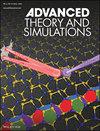基于分数阶滑模和干扰观测器的下肢外骨骼轨迹跟踪控制研究
IF 2.9
4区 工程技术
Q1 MULTIDISCIPLINARY SCIENCES
引用次数: 0
摘要
下肢外骨骼的行走稳定性受到非线性动力学、摄动和噪声的影响,容易引发传统控制方法的轨迹偏差和抖动振动。为此,本研究提出了一种基于分数阶非线性扰动观测器(FONDOB)和极限学习机(ELM)的改进滑模控制方法。首先,通过引入分数阶微分算子,构造了一种非线性多尺度算子,增强了对失配扰动的动态跟踪能力,并建立了Lyapunov稳定性判据,保证了观测误差的指数收敛性。在此基础上,设计了一种分数阶滑模曲面的滑模控制器,并结合ELM算法对系统的不确定性进行估计,以减小系统抖动。在Simulink环境下设计了分数阶系统的数值模拟方法,并进行了仿真实验。实验结果表明,所提出的分数阶控制器比传统的整数阶滑模控制器具有更好的控制性能。本文章由计算机程序翻译,如有差异,请以英文原文为准。
Research on Trajectory Tracking Control of Lower Limb Exoskeleton Based on Fractional Order Sliding Mode and Disturbance Observer
The walking stability of the lower limb exoskeleton is affected by nonlinear dynamics, perturbations and noise, which easily triggers the trajectory deviation and jitter vibration of the traditional control method. For this reason, this study proposes an improved sliding mode control method based on fractional‐order nonlinear disturbance observer (FONDOB) and extreme learning machine (ELM). First, a FONDOB is constructed to enhance the dynamic tracking ability of the mismatch disturbance by introducing fractional‐order differential operators, and a Lyapunov stability criterion is established to ensure the exponential convergence of the observation error. On this basis, a new sliding mode controller with fractional‐order sliding mode surface is designed, which is combined with the ELM algorithm to estimate the system uncertainty in order to reduce the system jitter. The numerical simulation method of the fractional‐order system is also designed in Simulink environment and simulation experiments are carried out. The experimental results show that the proposed fractional‐order controller has better control performance than the traditional integer‐order sliding mode control.
求助全文
通过发布文献求助,成功后即可免费获取论文全文。
去求助
来源期刊

Advanced Theory and Simulations
Multidisciplinary-Multidisciplinary
CiteScore
5.50
自引率
3.00%
发文量
221
期刊介绍:
Advanced Theory and Simulations is an interdisciplinary, international, English-language journal that publishes high-quality scientific results focusing on the development and application of theoretical methods, modeling and simulation approaches in all natural science and medicine areas, including:
materials, chemistry, condensed matter physics
engineering, energy
life science, biology, medicine
atmospheric/environmental science, climate science
planetary science, astronomy, cosmology
method development, numerical methods, statistics
 求助内容:
求助内容: 应助结果提醒方式:
应助结果提醒方式:


